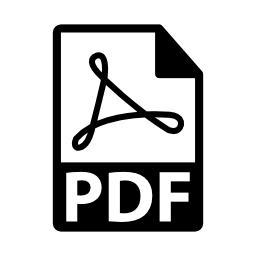October/November 2021 (vol. 18/3)
ContentsFeaturesNewsLegal
NewsResearch DigestResearch PlusCPD
 PERSONAL LEARNING ZONE
PERSONAL LEARNING ZONE
Summary:
FEATURED ARTICLE
This issue of Occupational Health [at Work] features a Personal Learning Zone (PLZ) article recommended for continuing professional development (CPD). The assignment questions, ‘Personal learning statement’ and ‘Certificate of engagement’ are available to subscribers at here. These will also be stored in your password-protected PLZ. The PLZ will help you document your own CPD. Occupational health physicians and nurses, occupational hygienists and other professionals can use the resource in support of their specialism’s revalidation or CPD requirements
Pages 27-31.Work addiction Like many behavioural addictions, work addiction is easily misunderstood. ‘Always hard at work, dedicated and focussed’ might in fact be masking obsessional behaviour, damaging the employee’s relationships, their health and ultimately their performance. Understanding the six core features of work addiction will help identify when an individual’s relationship with work is no longer healthy, and prompt interventions to restore balance.
ADDITIONAL CPD
The following articles, news and research items are suggested reading for CPD and professional revalidation. Subscribers can complete their online Personal Learning Zone CPD record at here
Page 4-5. Draft guidance from NICE provides evidence-based strategies for promoting mental wellbeing at work – both at the organisational and individual levels.
Page 6. The HSE’s Manual handling assessment chart has been released as an online tool to aid risk assessment and legal compliance.
Pages 10–13. An EAT decision in Brightman v TIAA Ltd underlines the importance of employers obtaining up-to-date medical evidence from OH before making a decision to dismiss an employee on grounds of ill health.
Pages 14–26. The SEQOHS OH accreditation scheme is a useful way to help improve clinical governance and, particularly for commercial providers, to obtain new business; however, many respondents to our survey criticised the scheme for being too costly and time consuming.
Pages 32–35. Understanding how personal, environmental and occupational factors combine to influence individual risk can help in developing control strategies to promote better health.
Pages 36–38. People made ill through exposure to hazardous physical, chemical or biological agents through work activities can claim no-fault compensation; but occupational COVID-19 is not yet compensable.
Pages 39–42. Our compendium of recent research includes a study on the relationship between burnout and scores on the HSE’s Management Standards Indicator Tool, plus a study demonstrating that gratitude is directly associated with work engagement.
Author: The At Work Partnership Ltd
Occupational Health at Work October/November 2021 (vol. 18/3) pp43



